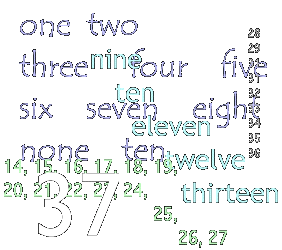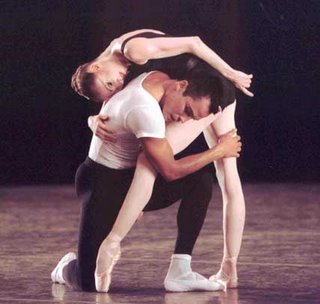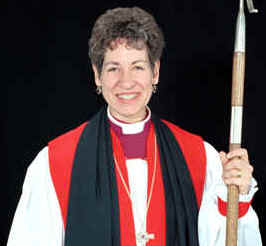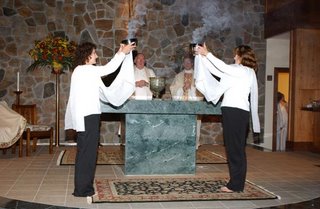 (And a Musical Interlude)
(And a Musical Interlude)The unifying numbers, in themselves, are unknowable. For they are more ancient than Beings and more unified than Forms, and since they are the generators of Forms they exist prior to those things called "intelligibles". The most august of theurgies demonstrate this, since they make use of numbers capable of acting ineffably, and by means of them, they effect the greatest and most ineffable of operations.
-Proclus, from Platonic Theology
I never really liked studying mathematics in school. It was rather dry stuff, with only one answer, and no "passion" to it. I remember struggling to pay attention to the teachers as they explained the intricacies of quadratic equations, geometric postulates, and other things I found boring to no end. For me, these classes were about getting the grade that I wanted so I could move on, and I had to fight for that grade.
Imagine my surprise, then, when in reading Theurgy and the Soul by Gregory Shaw, I found an chapter on the religious significance of mathematics in antiquity. This particular quote floored me:
For Pythagoreans the study of numbers was a religious exercise. Iamblichus says that, "if we wish to study mathematics in a Pythagorean manner, we ought to pursue zealously its God-inspired, anagogic, cathartic and initiatory process" Hardly the prerequisites of mathematicians today! The requirements for a Pythagorean mathematicians were far more demanding, for Pythagoreans accepted only those who were willing "to share their entire life with the community". (p. 195)
Shaw continues:
Buckert maintains that prior to 460 B.C. "Pythagoreans" had discovered that the diagonal of a square with the side of "1" has an irrational value and therefore cannot be defined arithmetically. Nevertheless, it becomes defined when it is geometrically performed, which means that the irrational becomes rational when it functions as a generative power. In the same way, a corresponding irrational power was understood to exist in the soul, a power that remained ineffable until it was revealed in theurgic performance: the "ineffable acts". The supposed "irrationality" of the theurgic rites, therefore, was consistent with the mathematic solution to the problem of incommensurate lines within the "unit square and "unit cube". Like the irrational diagonal, the ineffable power of the gods was alogos with respect to discrete (arithmetic) reasoning yet became the source of a logos revealed in embodied (geometric) action. (p. 211)
There is another significant quote, this time from Jean Trouillard, that Shaw cites on p. 190, roughly translated as the following:
We must note the capital thesis of Neoplatonism according to which thought was not the primary value. It was rather a mediation between the dispersion of the sensible and pure mystical union.
A far cry from today's postmodern intellectual universe! According to this model, all things that are not quantifiable are uncertain, and that which is quantifiable has no metaphysical or moral significance. For modern man, to mix mathematics and religion would be like mixing oil and water, and they would dismiss the above quotes as pagan superstition, quaint and rather outdated interpretations of what is really a hollow and meaningless universe.
In the ancient system, however, numbers were viewed as the highest symbols of the gods in the sensible cosmos. Even in St. Augustine, there was an attempt to view the significance of numbers in the Scriptures and in creation. It is significant that even in what we would deem the most "irreligious" of realms, ancient man could see the hand of God.
Perhaps I should go back to crunching those numbers again.....
*************
Indeed, before the soul gave itself to the body, it heard the divine harmony plainly. Therefore, after it departs into a body and hears the sort of melodies that especially preserve the trace of the divine harmony, it welcomes these and recollects the divine harmony from them. It is drawn to this, makes itself at home with it, and partakes of it as much as possible.
-Iamblichus, De Mysteriis
Not that I agree with this quote in terms of pre-existence of souls in another realm; in that sense I am thoroughly Christian and Aristotelian. There is a similar quote in Origen, in his commentary on the Song of Songs, when he says that when we enter the temple of God for the first time and behold the truths of the Christian Faith, we do not so much discover them but rather remember them. Again, Origen had his problems too.....
A friend once told me about a program he saw where a group of agnostic musicians spent a year touring European churches while giving performances of Bach. One suprisingly said at the end of the ordeal that the whole experience, "made him feel closer to Jesus." An they were not just performing the sacred cantatas, either.
If Christianity has any hope of evangelizantion in this new dark ages, much of it will come from our musical heritage. In spite of the rather low quality of contemporary music (and even music deemed religious), there is still a thirst for beauty amongst many young people that a Bach, a Palestrina, or Gregorian chant satisfies. If there is any way to reach them, this is a good place to start, if and only if we can portray these works as products of traditional doctrine and liturgy and not just things in themselves. There is a whole life, the Life, of which this music is only a faint manifestation.
In a sense, too, when they listen to these works, they are indeed remembering a sacred past, if only for the first time.



















